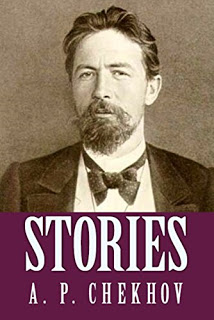

| Online: | |
| Visits: | |
| Stories: |

| Story Views | |
| Now: | |
| Last Hour: | |
| Last 24 Hours: | |
| Total: | |
Ward 6 by Anton Chekhov
Saturday, March 11, 2017 9:25
% of readers think this story is Fact. Add your two cents.
I read the Larissa Volokhonsky and Richard Pevear translation of this story.
Like many of his stories, Anton Chekov’s Ward No. 6 explores various aspects of the human condition. It also takes a dive into stoic philosophy.
The ward of the title is a small facility that is part of a hospital complex where the severely mentally ill are housed. Several patients are described in this tale. Central to the story is Ivan Dmitrich Gromov who is confines to the ward. .He is philosophical thinker. Though he clearly is suffering from paranoid delusion, he often shows also great deal of sanity and insight.
The patients live under terrible conditions. They are physically abused. The ward is squalor filled. Dr. Andrei Yefimych Ragin is the Director of the hospital. Though he sees the terrible way in which that the patients are treated, he passively allows it to continue.
There is a lot going on in this story. At its heart are the philosophical discussions between Andrei Yefimych and Ivan Dmitrich. The Doctor is a stoic. He references Marcus Aurelius and other stoic philosophers at several points in the story.
Ultimately Chekov seems to be labeling stoicism as hypocrisy. At one point Dr. Andrei Yefimych tries to lecture Ivan Dmitrich on the advantages of a stoic attitude,
“You can find peace within yourself under any circumstances. Free and profound thought, which strives towards the comprehension of life, and a complete scorn for the foolish vanity of the world— man has never known anything higher than these two blessings. And you can possess them even if you live behind triple bars”
Ivan Dmitrich is having none of this however. At one point he criticizes the philosophy that the doctor espouses,
“I know that God created me out of warm blood and nerves, yes, sir! And organic tissue, if it’s viable, must react to any irritation. And I do react! I respond to pain with cries and tears, to meanness with indignation, to vileness with disgust. In my opinion, this is in fact called life. The lower the organism, the less sensitive it is and the more weakly it responds to irritation, and the higher, the more susceptible it is and the more energetically it reacts to reality. How can you not know that? You’re a doctor and you don’t know such trifles!”
The narrative contains several lively debates and interactions between the two men. The fact that the doctor is preaching philosophical and emotional indifference from a position of comfort and security is underscored.
When Andrei Yefimych’s luck turns bad, he losses his position, financial security and his home. In a twist of fate, as his mental health deteriorates he is committed to Ward 6. However, he is unable to apply his stoic principles to cope with his terrible situation.
It seems clear, that based upon Andrei Yefimych fate, that Chekov is being highly critical of stoicism. Ivan Dmitrich, critic of stoicism, seems to be the voice of the author here. The hypocrisy and arrogance of Andrei Yefimych’s situation is highlighted in both the dialogues and the storyline.
My take on this is that Chekov has a point, but I do not go as far as him. For people who are in positions of security and ease to lecture those who are not so advantaged on the virtues of indifference, is the height of hypocrisy and arrogance. With that said, people have applied stoic philosophy successfully in dealing with terrible hardship as well as a means to great success. As a useful way to cope with suffering it can be enormously beneficial. Auschwitz survivor Viktor Frankl is but one of many examples of people who cite stoic ideals as the means through which they persevered through horrendous circumstances. However, this thought system should not be applied in a judgmental way. It also is not a universal solution to all the world’s suffering.
Ward 6 is another example of thoughtful but dark Chekov tale. Like many if not most of the author’s works, it is full of insights into human nature and life. This tale in particular, is a intellectual tidbit for those interested in philosophy.
This is a blog about good books. It is a place for me to share my musings about literature, history, culture and science. Most of what one will find here are not plain reviews. Instead, when I discuss a book I tend to explore a thought or two that I have about the work. This is a place for the enthusiastic reader who is curious about the world!
Source: http://briansbabblingbooks.blogspot.com/2017/03/ward-6-by-anton-chekhov.html



